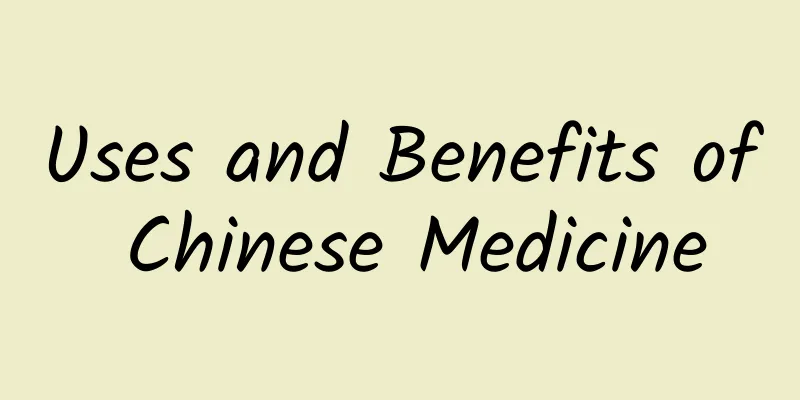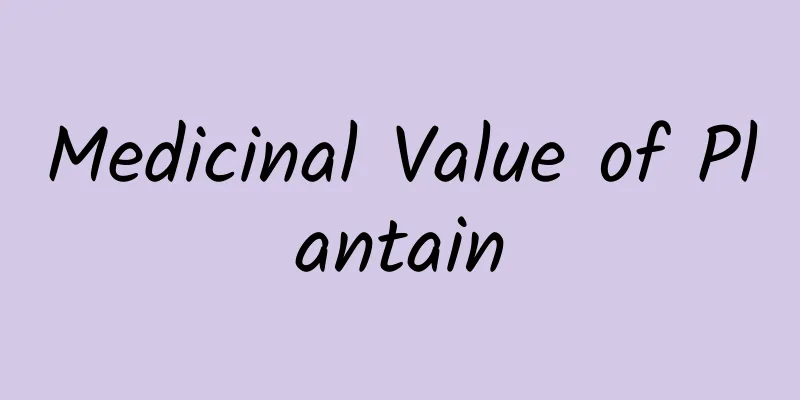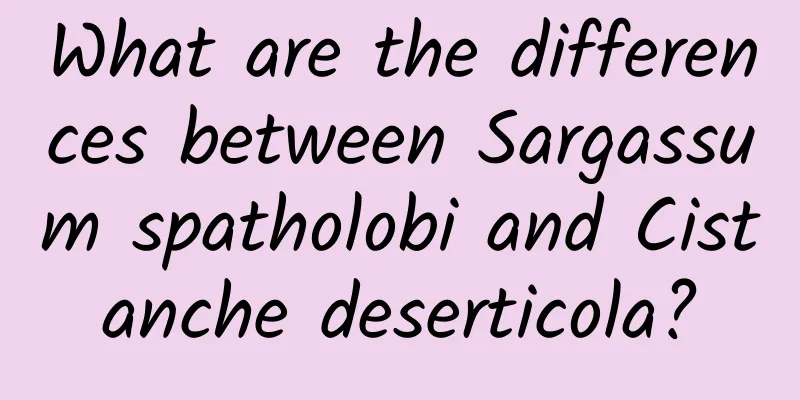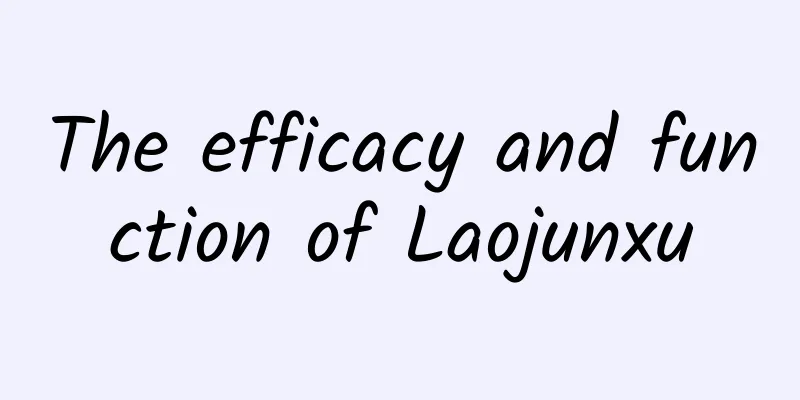Uses and Benefits of Chinese Medicine

|
People nowadays often suffer from illnesses because their physical constitution is relatively weak. Therefore, most people should choose to use Chinese medicine for treatment, because Chinese medicine has no side effects, and regular use will not have adverse effects on the body. Some people like to use traditional Chinese medicine to treat diseases, and of course some people do the opposite. So what are the uses and benefits of traditional Chinese medicine? Commonly used Chinese medicines for aromatic dampness removal: Atractylodes: pungent, spicy and warm, enters the spleen and stomach meridians. Drying dampness, strengthening the spleen, and eliminating rheumatism. Magnolia officinalis: bitter, pungent and warm, enters the spleen, stomach, lung and large intestine meridians. It promotes the flow of qi, dries dampness, eliminates accumulation and relieves asthma. Patchouli: pungent and slightly warm, enters the spleen, stomach and lung meridians. Eliminate dampness, relieve heat and stop vomiting. Amomum villosum: pungent and warm, enters the spleen and stomach meridians. It can eliminate dampness, promote qi circulation, warm the middle and stabilize the fetus. White cardamom: pungent and warm, enters the lung, spleen and stomach meridians. It can eliminate dampness, promote qi circulation, warm the middle and stop vomiting. Amomum villosum: pungent and warm, enters the spleen and stomach meridians. Drying dampness, warming the middle, and stopping malaria. Perilla frutescens: pungent and mild, enters the spleen, stomach and lung meridians. Eliminate dampness and relieve heat. Commonly used Chinese medicines for diuresis and dampness removal: Poria: sweet, mild and neutral. It enters the heart, spleen and kidney meridians. It can promote diuresis and eliminate dampness, strengthen the spleen and calm the mind. Alisma: sweet, mild and cold. It enters the kidney and bladder meridians. It can promote diuresis, eliminate dampness and purge heat. Coix seed: sweet, mild and slightly cold, enters the spleen, stomach and lung meridians. It can promote diuresis and eliminate dampness, strengthen the spleen and eliminate numbness, clear away heat and discharge pus. Poria: sweet, mild and neutral, enters the kidney and bladder meridians. Promotes diuresis and eliminates dampness. Plantago seed: sweet and cold, enters the kidney, liver and lung meridians. It can promote diuresis and relieve stranguria, dissipate dampness and stop diarrhea, clear the liver and improve eyesight, clear the lungs and resolve phlegm. Talcum powder: sweet, mild and cold, enters the stomach and bladder meridians. It can promote diuresis and relieve stranguria, clear away summer heat, remove dampness and heal sores. Sea Sand: sweet and cold, enters the bladder and small intestine meridians. Diuretic and relieving stranguria. Selaginella: bitter, sweet and slightly cold; enters the lung and bladder meridians. It can promote diuresis and relieve stranguria, clear the lungs and relieve cough. Bitter and slightly cold; acts on the Liver and Stomach meridians. It can eliminate dampness and turbidity, and dispel wind and dampness. Bitter and slightly cold; enters the bladder meridian. It can diuresis, relieve stranguria, kill insects and relieve itching. Dianthus superbus: bitter and cold, enters the heart, small intestine and bladder meridians. It can promote diuresis and relieve stranguria, promote blood circulation and unblock menstruation. Artemisia capillaris: bitter and slightly cold, enters the spleen, stomach, liver and gallbladder meridians. Clears away dampness and heat, promotes bile secretion and reduces jaundice. Centella asiatica: sweet, mild and slightly cold, enters the liver, gallbladder, kidney and bladder meridians. Removes dampness and reduces jaundice, promotes diuresis and relieves stranguria, detoxifies and reduces swelling. Akebia: bitter and cold, enters the heart, small intestine and bladder meridians. It can promote diuresis and relieve stranguria, clear away heat and promote lactation. Tongcao: sweet, mild and slightly cold, enters the lung and stomach meridians. Clears heat, promotes diuresis and relieves itching. Kochia scoparia: bitter and cold, enters the bladder meridian. Clears heat, promotes diuresis and relieves itching. |
<<: Effects and functions of tung tree leaves
>>: Side Effects of Antelope Horn
Recommend
The efficacy and function of snake king vine
The environment is now seriously deteriorating an...
Can wolfberry and astragalus be taken together for a long time?
Astragalus root is known to everyone. It can impr...
Angelica Cassiae
Medicinal herbs such as Angelica and Cassia Seed ...
An expelled "planet": What did Pluto offend?
Pluto, as the first Kuiper Belt object detected, ...
Once again, turn on this function on your phone, it can save lives at critical moments →
At present, earthquake relief work in Gansu and Q...
Thousand sheets, bean curd sheets, vegetarian chicken… How do Chinese people make use of soybeans?
Winter is here, and it's time to eat hot pot....
What are the effects of Yunnan Baiyao plaster
For people who exercise every day, it is best to ...
The efficacy and function of water hanxin grass
The essence of traditional Chinese medicine is to...
Fujusan has side effects
As for Fu Ju San, relatively few people know abou...
The efficacy and function of water bitter
As a traditional Chinese medicine, water bitter t...
These smuggled scales are all we know about the new pangolin species
Recently, scientists discovered a new species of ...
The efficacy of Gynostemma pentaphyllum tea
Everyone hopes to have a healthy body, so they al...
The role of proanthocyanidins
In daily life, we always see some girls who love ...
Is the antelope horn real?
Antelope horn is a precious Chinese medicine. It ...
Cells are like "series circuits"! It is the "electrical monster" in the Amazon water
Electric eels live mainly in turbid, circling wat...









